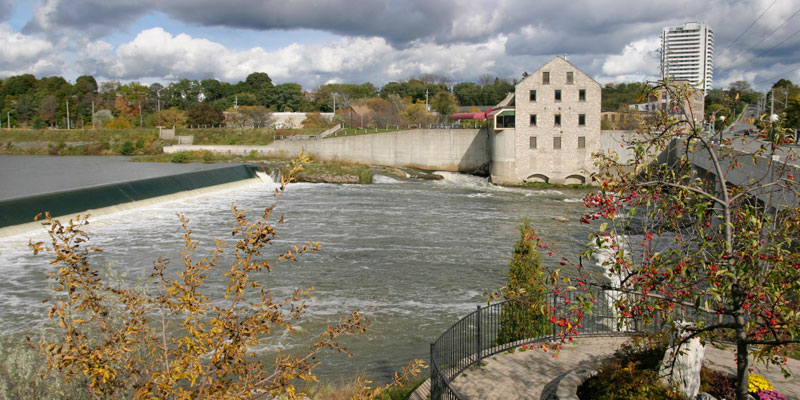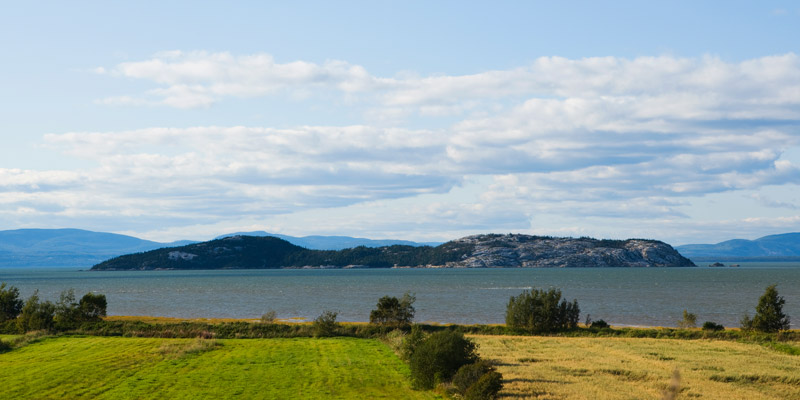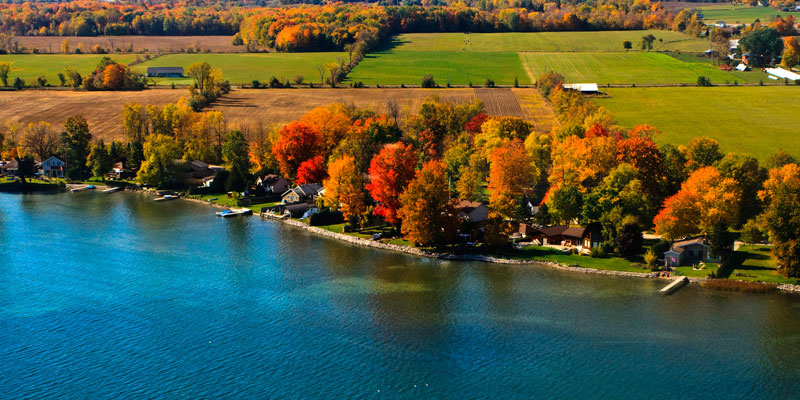Enhancing Water Security in Canada
Principal Investigator - Rob de Loë, Professor, University of Waterloo, 2005 - 2007

Challenge
Water security is a function of reliable access to an adequate water supply for both human and environmental uses. In extreme circumstances, the lack of water security can lead to poverty, environmental degradation, disease, and even death. In Canada, water users and managers at all levels are challenged on a number of fronts, including growing demands for water; increasing variability of supplies; threats to water quality from land uses and activities among others; and a rapidly evolving institutional environment. All of these challenges pose a significant threat to the country’s water security.
Project
The goal of the project was to enhance water security in Canada by developing, promoting and implementing innovative ways to identify, manage and mitigate threats to water quality and quantity. Specific objectives included:
- Identifying and assessing factors that facilitate and constrain capacity to anticipate and manage threats to water security
- Developing, promoting and implementing innovative tools and policy options for identifying and managing threats to water security
- Enhancing water security by building local, provincial and NGO capacity to implement the developed tools and policy options
Several interrelated initiatives were developed to address these objectives. A workshop for Ontario Source Water Protection (SWP) policy leaders was initially held to gauge stakeholders’ current knowledge of water security. In this workshop, land use planning-based versus contaminants-based approaches to SWP planning were evaluated. Using this information, the researchers set out to build the capacity of watershed stewardship organizations to implement SWP measures and to participate in SWP planning. By working with local stakeholder groups, the research team was able to implement capacity building tools for water quality improvement.
From a legislative perspective, the project sought to develop and assess policies for increasing efficiency of water allocation at the watershed scale, as well as to develop and implement strategies to protect water quality, reduce vulnerability to water shortages, and increase water use efficiency at the local and regional level in the Prairies, Ontario and Atlantic Canada.
Outputs
- As part of the water security workshop, a draft workbook identifying issues and options relating to water security was prepared and circulated to all participants.
- Development of economic-hydrologic models to enhance wetland conservation practices.
- Sparked by Conservation Authority (CA) partners, the researchers generated a resource document for CAs that addresses structuring the process of SWP at the watershed scale. The document was subsequently promoted by Conservation Ontario to the 36 Conservation Authorities in the Province.
- Other produced resources include a guidebook and web-based resources for creating organizational knowledge for managing water resources, a manual on the implementation of source protection measures by municipalities in Canada, as well as guidance documents and best practices manuals for landowners, local officials, and others, relating to SWP planning and water allocation.
Outcomes
All of the project initiatives were designed to achieve tangible outcomes at various scales in Canada relating to innovative policies and practices that improve water security by changing practices related to on-farm water use and wastewater management. These outcomes include:
- uptake of policy-relevant knowledge generated through the project;
- transfer and adoption of policy innovations and key tools, new/enhanced partnerships and collaboration, and the training of highly qualified personnel;
- addressed needs identified by partners, which should increase the likelihood of adoption; and,
- increased capacity, which will help to achieve a better balance between human and ecosystem demands for water. To this end, economic-hydrologic models were developed to enhance wetland conservation practices that promote source water protection and guide water allocation decision making at the watershed scale for the selection of appropriate policy options.




